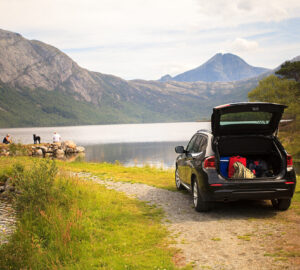With the powerful words of Greta Thunberg ringing in our ears and the fact that tourism accounts for around 8 per cent of global greenhouse gas emissions, many of us are thinking about how we can make more eco-conscious choices in our everyday lives, plus wondering how we can combine our passions for the environment and exploring the globe to become more sustainable travellers.
Thankfully there are some great tips and tricks we can follow to ensure each of us treads more lightly on the planet and travels in a way which is sustainable both in terms of the environmental impact we have and in terms of supporting the local economies we encounter.
Read on to discover some ways in which we think you can easily become a more sustainable traveller.
Do Your Research
More and more companies have become aware of the importance of sustainability and having an environmental conscience. However, it is vital that you do your research to ensure you find companies that are in line with your values and who truly support the three pillars of sustainability (environmental, economic and social).
You’ll want to seek out companies who have accreditations from the likes of the GSTC, Rainforest Alliance, EarthCheck or Green Tourism Business Scheme (UK) as these are independent bodies that analyse businesses based on their sustainable tourism criteria. This gives you the information you need to be able to make a conscious decision about which tour operator, airline or hotel you travel with.
Seek Out Eco-mmodation Or Campsites
Another thing to keep in mind when thinking about sustainable travel is the type of accommodation you choose. Where possible it is best to avoid staying in large resorts or all-inclusive hotels as these often (although not always) have a fairly consumptive attitude; having deforested large areas of natural land to build the resort or simply providing far too much food than is necessary, leaving much of it to go to waste.
Instead, why not choose a small boutique hotel or a local guest house where you know you are putting back into the local community and having a more authentic experience?
It’s also worth looking out for hotels that are transparent about their environmentally-friendly ethos, showing whether properties were built using sustainable materials, how many local citizens they hire or what their view is on using local produce, growing their own organic food or even their water and waste management practices.
Pack Economically
Packing light is a small change that each of us can make on every trip that will cumulatively reduce our impact on the planet. While it’s tempting to squeeze in ‘just one more top/bikini/dress etc’ into our bags, it is important to remember that not only does that make the bag heavier for us to carry, but it also adds weight to the plane, trains and cars that we are travelling on, which will then have to use more fuel to carry the additional load.
Not only will packing light help lessen your environmental footprint, but it also means if you do need to buy extra items such as toiletries or additional layers while travelling, you can purchase these on the road meaning you’ll be putting into the local economy too!
Reduce Single-Use Plastics
A few items that are worth squeezing into your luggage are your reusables such as a water bottle, bamboo/metal straw and cutlery, KeepCup and a tote bag. You’ll be amazed at how many times these come in handy while travelling, whether it’s while picking up groceries at a market, buying food or drinks to-go, or simply filling up your water bottle from a public tap (we recommend using a water filter bottle when on the road).
It is often when we travel that we realise the impact single-use plastic has on the environment, from seeing plastic scattered along the streets and rural beaches to snorkeling with plastic bags floating past! It is in these moments when the importance of sustainability hits home and you’ll be glad you thought ahead and packed your reusables!
Eat, Drink And Shop Locally

Another thing we can all do while travelling which ticks off the three pillars of sustainability is to eat, drink and shop locally wherever possible. Focusing on consuming local produce and purchasing souvenirs from the people who have actually made them ensures that we are supporting local communities, reducing the environmental impact of mass-manufactured items and having a much more authentic experience while we’re at it!
Whether you stop off at a roadside shack to enjoy tofu noodles in Asia, explore vegan markets and food tours in Europe, or buy artisanal gifts from the markets of Morocco, you’re sure to feel good about your purchase knowing that you’re supporting local businesses too.
Walk/Cycle/Kayak
Walking, cycling, kayaking, running or any other zero-emission modes of transport are lovely ways to connect with nature and explore the local area without pumping out fumes into the environment. Choosing alternative methods of transport while travelling is not only a fantastic way to keep healthy while on the road but it also helps you tread more lightly on Mother Earth, enabling you to be a more sustainable traveler.
However, if you do have to travel longer distances while abroad, you may want to consider taking shared public transport so that your emissions are shared collectively, you get to see the country while you’re en route and you have the opportunity to interact with locals who are usually more than willing to share their tops tips about their country!
Leave No Trace
Last but by no means least is the mantra ‘leave no trace’ which follows the ethos of taking only photographs and leaving only footprints. Not only does the ‘leave no trace’ mantra refers to taking your litter with you when you leave a location, but it also means that you should stick to marked footpaths, not interfere with wildlife and not take souvenirs such as shells, sand or stones from natural environments as they belong to the land, not to us.
Hopefully these top tips have given you more of an idea of how you can become a sustainable traveler, and how each of us can make small changes, which will have a large-scale positive impact on the planet.














